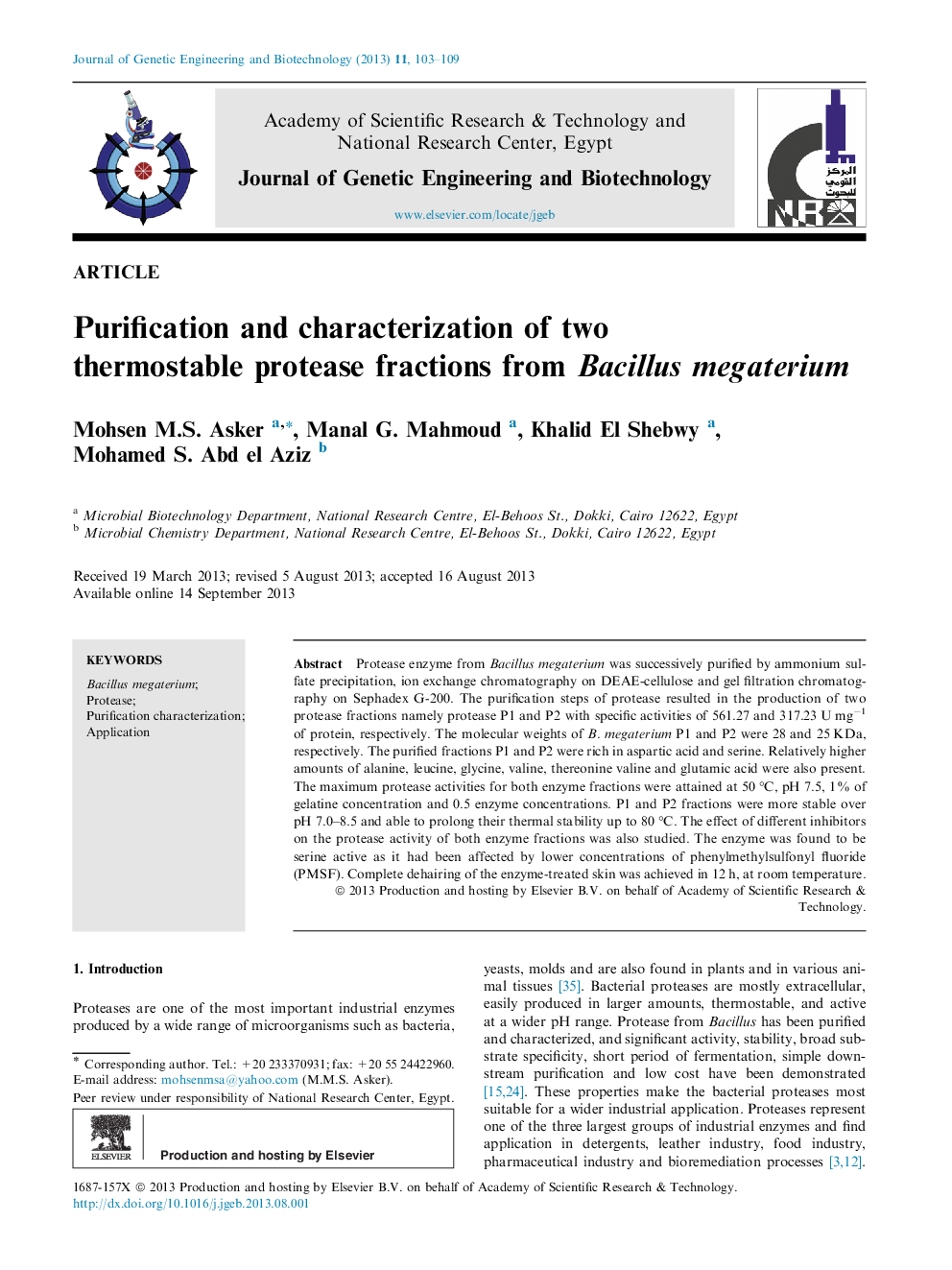| Article ID | Journal | Published Year | Pages | File Type |
|---|---|---|---|---|
| 2087917 | Journal of Genetic Engineering and Biotechnology | 2013 | 7 Pages |
Protease enzyme from Bacillus megaterium was successively purified by ammonium sulfate precipitation, ion exchange chromatography on DEAE-cellulose and gel filtration chromatography on Sephadex G-200. The purification steps of protease resulted in the production of two protease fractions namely protease P1 and P2 with specific activities of 561.27 and 317.23 U mg−1 of protein, respectively. The molecular weights of B. megaterium P1 and P2 were 28 and 25 KDa, respectively. The purified fractions P1 and P2 were rich in aspartic acid and serine. Relatively higher amounts of alanine, leucine, glycine, valine, thereonine valine and glutamic acid were also present. The maximum protease activities for both enzyme fractions were attained at 50 °C, pH 7.5, 1% of gelatine concentration and 0.5 enzyme concentrations. P1 and P2 fractions were more stable over pH 7.0–8.5 and able to prolong their thermal stability up to 80 °C. The effect of different inhibitors on the protease activity of both enzyme fractions was also studied. The enzyme was found to be serine active as it had been affected by lower concentrations of phenylmethylsulfonyl fluoride (PMSF). Complete dehairing of the enzyme-treated skin was achieved in 12 h, at room temperature.
